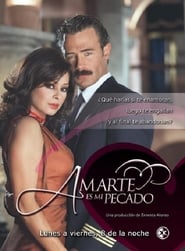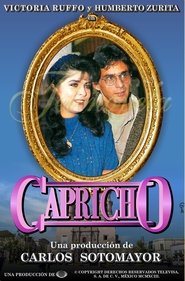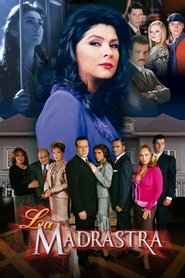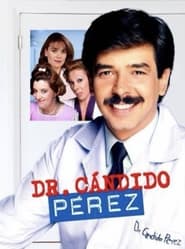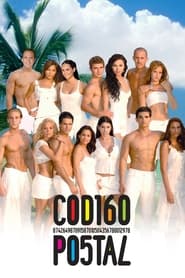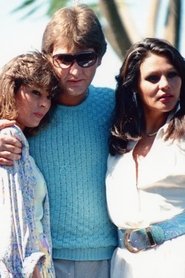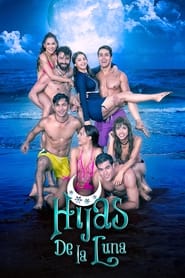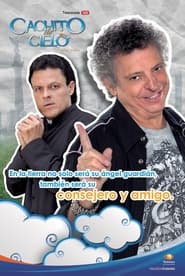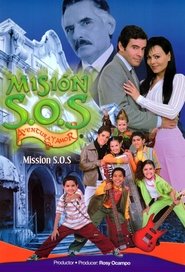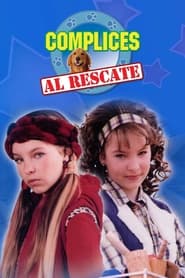Las Estrellas TV Series - Page 8
-
My Love, My Sin
2004
star 8Amarte es mi Pecado' is a Mexican telenovela that was transmitted in the year 2004. It is a production of Ernesto Alonso and the protagonists are Yadhira Carrillo, Alessandra Rosaldo and Sergio Sendel. -
Capricho
1993
Capricho
1993
Story about a woman that is unhappily married and with two daughters. She constantly reprimands Cristina and baby Raquel. What the people around her don't know is that Raquel is not her husband's daughter as everyone believes. Raquel is Eugenia and León's daughter. She has always loved him, not her husband. That is the reason she's always angry at Cristina. -
La Madrastra
2005
star 8.1La Madrastra is a Mexican telenovela. It was produced by Televisa and broadcast on Canal de las Estrellas in Mexico from 7 February 2005 through 29 July 2005. The program became an unexpected success, garnering ratings in excess of 30 points. Starring Victoria Ruffo and César Évora, who last appeared together in 2000's Abrázame muy fuerte, La madrastra tells the story of María, a woman who lost twenty years of her life after being falsely accused of murder and who returns to Mexico to exact revenge on her husband and friends who abandoned her and to see her beloved children once more. La Madrastra is fourth in a series of remakes of the 1981 Chilean production of the same name. The program aired five nights a week, Monday through Friday, at 9 pm for 25 weeks. A follow-up special, La madrastra: años después, aired shortly after the finale on 30 July 2005. -
Dr. Cándido Pérez
1987
star 5.3Dr. Cándido Pérez is a Mexican television sitcom that aired on Televisa from 1987 to 1993, starring Jorge Ortiz de Pinedo as the title character. The show is based on the 1962 film, Dr. Cándido Pérez, señoras. It was recorded at Televisa San Angel before a live studio audience. -
Apuesta por un amor
2004
star 6.8Apuesta por un Amor is a Mexican telenovela produced by Angelli Nesma Medina for Televisa in 2004. Patricia Manterola and Juan Soler starred as the protagonists, while Alejandra Ávalos, Roberto Ballesteros and Fabián Robles starred as the antagonists. -
Código Postal
2006
star 6.5Código Postal is a Mexican telenovela produced by Televisa and aired in Mexico on the network canal de las estrellas. It debuted on May 22, 2006 and finished on February 23, 2007 with hopes of duplicating the popularity of Mexican telenovela Rebelde which ended on June 2, 2006. Código Postal was replaced with Lola...Érase una vez. The serial takes place in Acapulco, a popular tourist destination in the state of Guerrero, Mexico. The series is set within an exclusive gated community where the bulk of the cast resides. Like many Mexican telenovelas the cast comprises young, attractive actors, and many of the plotlines revolve around suspense, heavy struggles, love and romance. -
Libre para amarte
2013
Libre para amarte
2013
Libre para amarte is a Mexican telenovela produced by Emilio Larrosa for Televisa. It is based on Colombian telenovela Los canarios. Gabriel Soto, Eduardo Santamarina star as the protagonists, with the stellar performance of the singer and actress Gloria Trevi for first occasion in a soup opera as Aurora Valencia, while Harry Geithner, Jacqueline Andere and Luz Elena González star as the antagonists. -
La piloto
2017
star 7.5Yolanda dreamed her entire life of being a pilot. She found a stewardess job, and an unexpected role in drug smuggling. -
Piel de otoño
2005
star 7.3Piel de otoño is a Mexican telenovela that was produced by Televisa and broadcast on El Canal de las Estrellas in Mexico from 9 May 2005 through 23 September 2005 in Mexico, and from October 10, 2005, through February 17, 2005, in the United States. Starring Laura Flores and René Strickler as the series' protagonists, the show tells the story of Lucía Villarreal de Mendoza, a woman who seeks refuge from her husband and children's abuses in the friendship of a stranger on the Internet, who signs his messages only as "wind". Piel de otoño is a remake of the 1986 Televisa telenovela Cicatrices del alma. The program aired weekdays at 5 pm for twenty weeks. -
Cachito de Cielo
2012
star 7.5The Argentine author Mario Schajris wrote Cachito de Cielo, a Mexican telenovela produced by Roberto Gomez Fernandez and Giselle Gonzalez for Televisa. The start of the story is based on the movies "Here Comes Mr. Jordan" and Heaven Can Wait, produced in 1941 and 1978. Maite Perroni and Pedro Fernández star as the protagonists, while Rafael Inclán, Jorge Poza, and Esmeralda Pimentel are antagonists. -
Si Dios Me Quita La Vida
1995
Si Dios Me Quita La Vida is a telenovela made by Mexican TV network Televisa. This telenovela was broadcast in 1995. This is a remake of the 1961 telenovela La Leona starred by Amparo Rivelles and Ernesto Alonso. -
Marimar
1994
star 7Story of love between Marimar and Sergio. Sergio is from a wealthy family, and Marimar lives with her poor grandparents in a hut in front of the ocean. -
Wild at Heart
2013
star 7.8Corazón indomable is a Mexican telenovela produced by Nathalie Lartilleux for Televisa. It is a remake of Marimar, produced in 1994, and starring Thalía and Eduardo Capetillo. Ana Brenda Contreras and Daniel Arenas star as the protagonists, while Ingrid Martz, Elizabeth Álvarez, Carlos de la Mota and René Strickler star as the antagonists. -
Sentimientos Ajenos
1996
Sentimientos Ajenos
1996
-
Misión S.O.S
2004
star 8.3Misión S.O.S. is a Mexican soap opera like Alegrijes y Rebujos which had child actors from Código F.A.M.A. 1 & 2 -
Cómplices Al Rescate
2002
star 7.6Cómplices al Rescate is a Mexican telenovela starring Belinda as two twins who were separated at birth.
